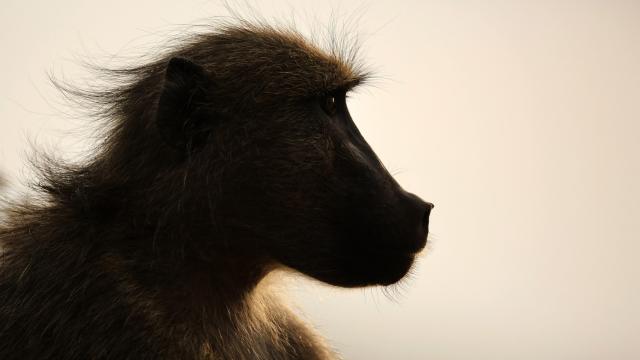Using genetic techniques and a chemical cocktail, scientists managed to sustain a pig’s heart inside a baboon for 945 days, establishing a new benchmark for cross-species transplantation. If extended to humans, the technique could be used to ease the ongoing organ shortage.
Cross-species transplantation, or xenotransplantation, is proving to be a tough challenge. The primary obstacle for researchers has been the strong immune reaction of recipients, resulting in organ rejection. To date, typical survival times for species-to-species transplants — such as pig hearts being transplanted to baboons — have been limited to the 180 to 500 day range, which is frustratingly brief.
Now, as a new Nature Communications study reports, an international team of researchers has finally extended organ survival time to beyond the two-year mark, and they did so using a hybrid technique involving both genetics and powerful new immune-suppressing drugs. In future, a similar technique could be applied to humans, easing the demand for organs for transplants. In the US, there are about 122,000 people on the transplant waiting list at any given time, of which thousands die each year. In Australia, there are 1600 people on the list at any given time. Pig hearts are ideal candidates for transplantation owing to our similar biologies, and our extensive knowledge of porcine DNA.
For the experiment, cardiologist Muhammad Mohiuddin from the National Institutes of Health in Bethesda, Maryland, and his colleagues implanted a pig heart into a baboon. The pig organ did not replace the baboon’s heart, but was instead connected to the baboon’s circulatory system where it was monitored for more than two years. Baboons are typically used in studies like this because they’re closely related to humans; if it works in a baboon, it will likely work in a human.
To help the baboon avoid organ rejection, the researchers used a previously established line of donor pigs with three key genetic modifications. These genetic tweaks were baboon-friendly, allowing a significant degree of immune tolerance among the primates. To supplement this, the researchers improved a treatment based on antibodies and drugs to control the baboon’s immune system.
In the study, five baboons received pig’s hearts. The implanted organs were maintained as long as the recipients were administered the immune-suppressing drugs. Of the five baboons, one managed to keep its implanted heart for a whopping 945 days. The median across the study was 298 days, so clearly more work needs to be done. Looking ahead, the researchers would like to use the same technique to replace a baboon’s heart outright.
As promising as this result appears to be, it may not represent the future of organ transplants. Aside from the ethical issues of growing organs in nonhuman animals, the rejection issue continues to be a problem. Even if this technique is eventually applied to humans, it would require human patients to stay on immune-suppressing drugs for the rest of their lives.
At the same time, there are several other methods currently under development that could solve the organ donation shortage, including regenerative medicine (for example, growing your own organs from your own stem cells), bioprinting and advances in cold storage (which would prolong the shelf life of donated organs).
Top: Cardiac surgical procedure at Gemelli Hospital in Rome. Image: Gemelli Hospital/CC BY-SA 4.0
